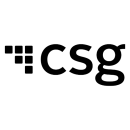Full-stack development continues to be a popular professional route within the software development field.
For example, in Stack Overflow’s 2021 Developer Survey, almost half (specifically, 49.47%) of the nearly 66,500 responses in the “developer type” category identified their role as a full-stack developer, outpacing their back-end- and front-end-focused counterparts (43.73% and 27.42%, respectively).
So, what does a full-stack developer need in order to thrive? A mix of both technical know-how and soft skills, according to a pair of technologists with whom Built In Chicago connected.
For example, Suresh Kolluri, software development engineering lead at CSG, tabbed knowledge of languages such as C# and JavaScript, libraries like JQuery and other tools as just a few helpful-to-have skills. Additionally, IMC Trading Software Engineer Lauren Ciardiello said a knack for producing “high-quality code” as one of many requisites.
Yet knowing one’s way around tech only does so much. From a soft-skills perspective, both Ciardiello and Kolluri emphasized the value of doing well in a team setting. “Collaboration and communication are fundamental to the success of the team,” Ciardiello said.
Whether it’s elements in the stack or the intangibles outside of it, here are the proficiencies that Ciardiello and Kolluri said inform full-stack success.
What technical skills do you consider to be the most essential for your success as a full-stack developer, and why?
Strong knowledge of algorithms and data structures is essential for full-stack developers. I use these skills constantly when determining the most optimal way to solve problems. These computer science fundamentals can be more important than programming itself since programming is just the tool to solve the problem. Also, the ability to debug and find errors in applications is important. Being able to solve issues quickly without wasting time and moving forward is important for productivity. These skills can be enhanced with practice by figuring out issues in programs and learning from the steps taken and solutions derived.
Writing high-quality code is also an important skill to have. This makes it easier for other developers to build off of my code when it is understandable. This creates sustainable programs that are easily adapted to meet new requirements. Also, code is less error-prone when it is simpler and easy to follow. Overall, writing high-quality code will help the company and developers by spending less time fixing bugs, easily adding new features and increasing the longevity of programs.
What’s a soft skill that you also consider critical for your success? Why is this skill so important?
Teamwork is an important soft skill to have. As a full-stack developer, it is not required to know everything, but it is important to have an overall understanding of what’s going on in the front end and back end. No single team member will be an expert in all the different areas that a full-stack developer needs to be aware of. It is important to play to each team member’s strengths, such as when delegating tasks and sharing expertise.
Collaboration and communication are fundamental to the success of the team. Collaboration helps me come up with the most optimal and efficient solutions to problems. Written communication has also become increasingly important with more remote work. For example, I find I am writing more in order to update coworkers on the status of my projects. Working well in a team can enhance creativity since it leads to new ideas and processes. Retrospectives are an important part of our team so that we can adjust how we function based on feedback and learnings.
Feedback has helped me with my technical and soft skills. We have a strong feedback culture at IMC.”
Throughout your career, what steps have you taken to strengthen these skills? And what advice do you have for developers looking to build up their full-stack repertoire?
Effectively debugging applications is a skill learned over time. Something that has helped me is the mentorship I’ve received at IMC. To strengthen debugging and problem-solving skills, a mentor can push you in the right direction when stuck on solving a problem. From that experience, I am able to learn what caused the roadblock and what steps led me to the answer. I can apply learnings from past solutions to new problems to enhance these skills.
Feedback has helped me with my technical and soft skills. We have a strong feedback culture at IMC. I am consistently receiving constructive feedback on the code that I write so I can improve my code quality and algorithmic skills. I also receive feedback on how I am communicating and collaborating with the team. I think soliciting feedback and being willing to adapt is really important to continue learning and improve personal performance.
What technical skills do you consider to be the most essential for your success as a full-stack developer, and why?
C#, SQL Server with sound knowledge on object-oriented programming (OOPs) helped me to be a successful full-stack developer, along with hands-on experience on client-side technologies like JavaScript, jQuery, MVC and cloud concepts.
Other key areas include being good in debugging; unique logical thinking; ability to design a new implementation; overall functional knowledge on the domain which you are working on; and the ability to analyze the functional documentation.
I believe all these skills helped me solve different problems and become a successful developer.
What’s a soft skill that you also consider critical for your success? Why is this skill so important?
Teamwork and adaptability are crucial behind my growth. Peer programming and discussions with colleagues helped me a lot at the beginning of my career.
Peer programming and discussions with colleagues helped me a lot during my initial career.”
Throughout your career, what steps have you taken to strengthen these skills? And what advice do you have for developers looking to build up their full-stack repertoire?
I am always open to new challenges, which help me learn things. I would advise the same for other developers looking to build their careers toward full-stack skills.








